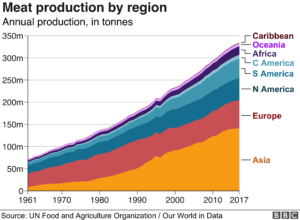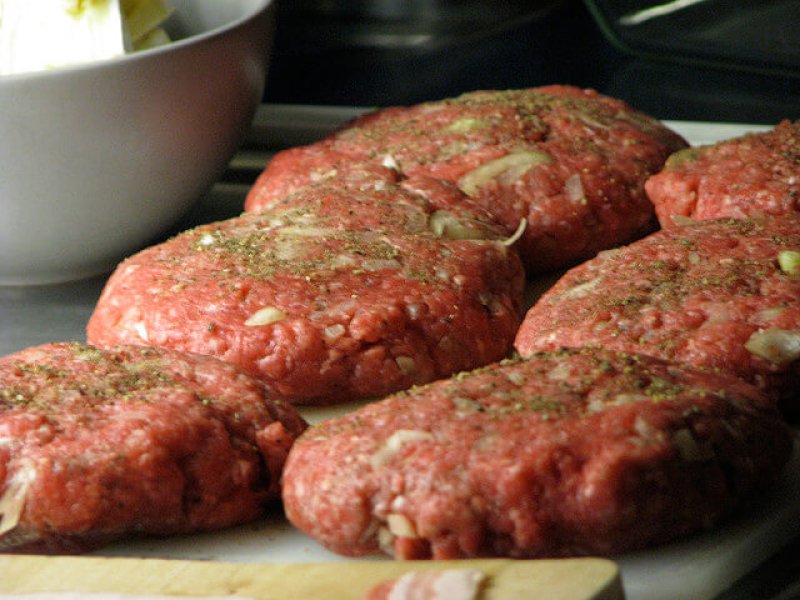You may have heard an increasing number of people vow to reduce their meat eating lately – or cut it out altogether. This often forms part of a bid to become healthier, reduce their environmental impact, or consider animal welfare.
A third of Britons claim to have either stopped eating meat or reduced it, while two thirds of those in the US say they are eating less of at least one meat.
…
But have these sentiments had any effect on the ground?

What we do know is that global meat consumption has increased rapidly over the past 50 years. Meat production today is nearly five times higher than in the early 1960s – from 70 million tonnes to more than 330 million tonnes in 2017.
…
Around the world, people have become richer, with the global average income more than tripling in half a century. When we compare consumption across different countries we see that, typically, the richer we are the more meat we eat. There are not just more people in the world – there are more people who can afford to eat meat.
Read full, original article: Which countries eat the most meat?































